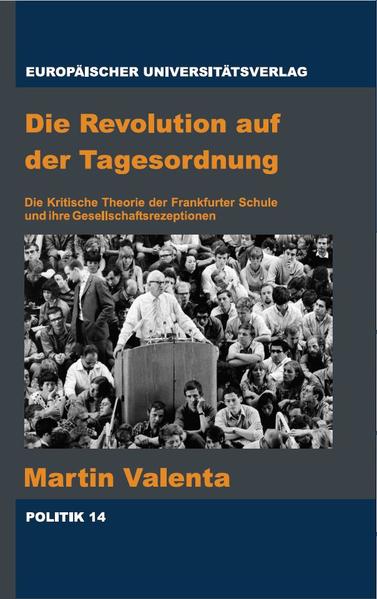
Die Revolution auf der Tagesordnung
Product Information
Product Description
In the present work, the relationships between the Critical Theory of the Frankfurt School (including Theodor W. Adorno, Herbert Marcuse, Erich Fromm, Max Horkheimer) and the West German New Left are examined. The emergence and initial phase of neo-Marxist thinking in Europe is presented and its influence on the New Left, Red Army Faction, and the Greens in their founding year (1980) is analyzed. The study reveals that Critical Theory strongly shaped the New Left initially (1962-65), but its influence later declined (1967-69) and finally turned into rejection. Instead, traditional revolutionaries like Mao Zedong or Che Guevara served as role models. The RAF also referred to these, without considering the Critical Theory of the Frankfurt School. All the more clearly, however, Critical Theory found its way into the political program of the Greens. Overall, this shows that Critical Theory made a significant contribution to the modernization of Marxism and leftist thinking models of the 20th century, both in theory and in practice. Martin Valenta, Ph.D. (born 1980) works as a historian and educator at Institute for the Study of Totalitarian Regimes and Charles University in Prague with the comparative research of new social movements. Previously he studied in Prague and at various German universities in Frankfurt a.M., Düsseldorf, Freiburg and Dresden. He was awarded the Erich Maria Remarque Prize (2009) by the German-Czech Historical Commission. From 2012 to 2014 he directed a large project on teaching modern history in schools in the Czech Republic. His monographs and published studies met with positive response in Czech media. In his latest publication in 2018 he dealt with the phenomenon of Czech underground movements.
Additional Information
In this work, the relationships between the Critical Theory of the Frankfurt School (including Theodor W. Adorno, Herbert Marcuse, Erich Fromm, Max Horkheimer) and the West German New Left are examined. The emergence and initial phase of neo-Marxist thinking in Europe is presented and its influence on the New Left, Red Army Faction and the Greens in their founding year (1980) is analyzed. The study shows that Critical Theory initially strongly influenced the New Left (1962-65), but its influence later declined (1967-69) and eventually turned into rejection. Instead, traditional revolutionaries like Mao Zedong or Che Guevara served as role models. The RAF also referred to these without considering the Critical Theory of the Frankfurt School. All the more clearly, however, Critical Theory found its way into the political program of the Greens. Overall, this shows that Critical Theory significantly contributed to the modernization of Marxism and leftist thought models of the 20th century, both in theory and practice. Martin Valenta, Ph.D. (born 1980) works as a historian and educator at Institute for the Study of Totalitarian Regimes and Charles University in Prague with the comparative research of new social movements. Previously, he studied in Prague and at various German universities in Frankfurt a.M., Düsseldorf, Freiburg and Dresden. He was awarded the Erich Maria Remarque Prize (2009) by the German-Czech Historical Commission. From 2012 to 2014, he led a major project on teaching modern history in schools in the Czech Republic. His monographs and published studies received positive response in Czech media. In his latest publication in 2018, he dealt with the phenomenon of Czech underground movements.
Series Information
Politics (14)